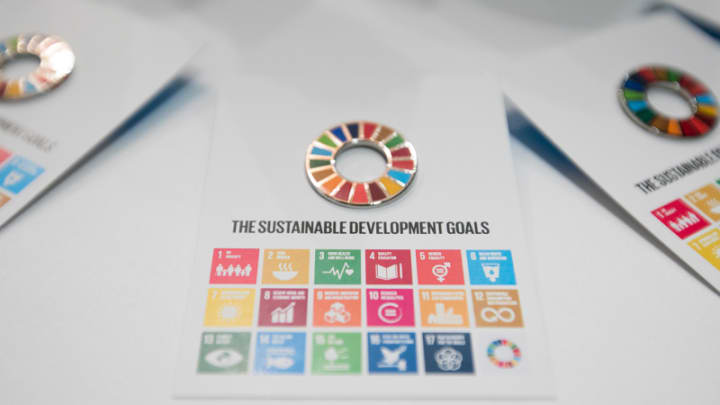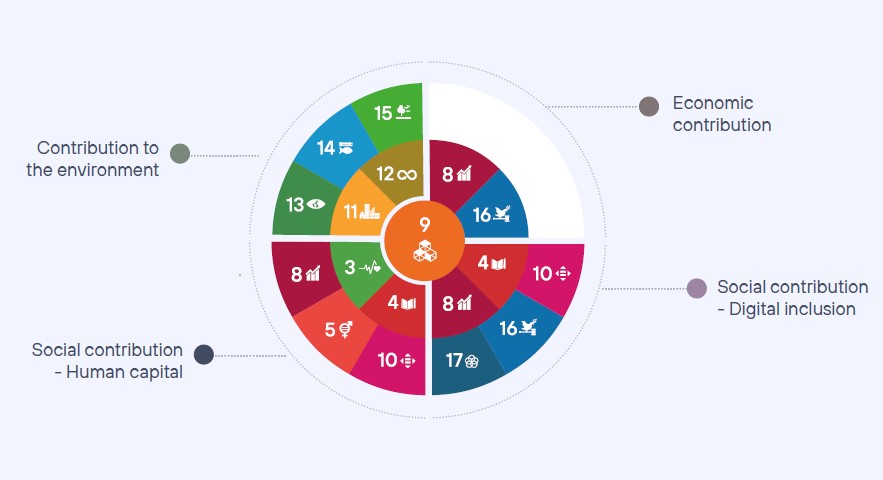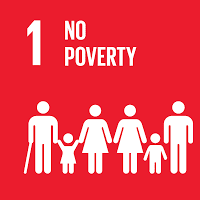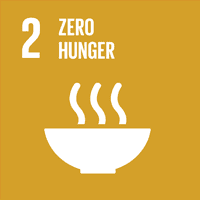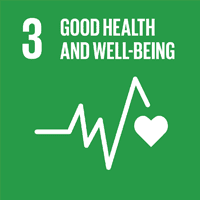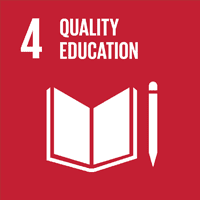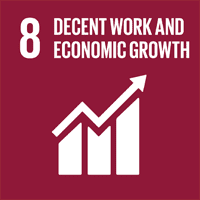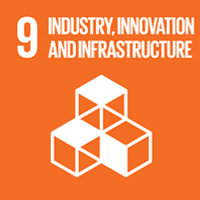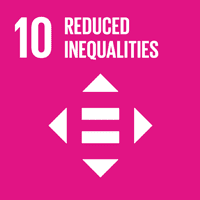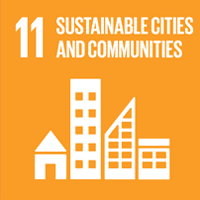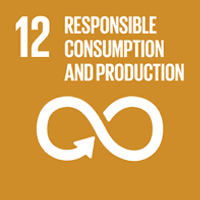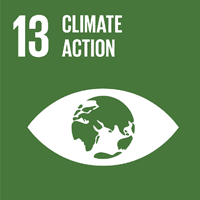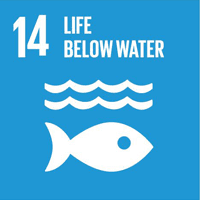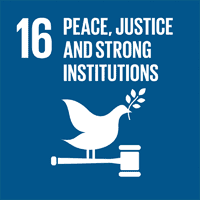Welcome to Undiksha's Commitment to Sustainable Development Goals (SDGs)
Each year, we report on our contribution to the global SDGs. We identified activities in Undiksha relevant to UN SDGs. The strong link between our activities and the UN SDGs brings focus and perspective to our own sustainability goals and helps us set targets that are more impactful..
Undiksha is resolute in its commitment to bringing about constructive change and contributing significantly to the attainment of the 17 United Nations Sustainable Development Goals. Inspired by the principles of Tri Hita Karana, Undiksha recognizes the interconnectedness of human prosperity, environmental stewardship, and spiritual harmony, and strives to integrate these principles into all aspects of our academic endeavors and community engagement initiatives. With a firm belief in the transformative power of education and community engagement, Undiksha has embarked on a journey to integrate the principles of sustainability and social responsibility into every aspect of our institution. Numerous programs have been initiated to be in line with the SDGs, including those that aim to increase access to high-quality education for all, protect the environment, and promote social justice. Some important domains in which Undiksha is making an impact are:
Through innovative research, dynamic teaching methodologies, and active community engagement, Undiksha remains steadfast in its commitment to advancing the SDGs and building a more sustainable and equitable future for generations to come.
University Decrees Guiding Our SDG Initiatives at Undiksha
Undiksha, committed to fostering sustainable development and societal progress, has established a comprehensive University Decree aimed at aligning institutional efforts with the United Nations Sustainable Development Goals (SDGs). This decree serves as a guiding framework, providing clear direction and principles that underscore our dedication to integrating sustainability principles into all aspects of our academic and non academic activities.
Here are some of the things decided through this rector's regulation:
- Enact the Rector's Regulation on Guidelines for Managing the Green Campus of Universitas Pendidikan Ganesha as Guidelines for the Arrangement of a Green Campus at Universitas Pendidikan Ganesha.
- Enact the guidelines mentioned in the first dictum as a reference for:
-
- The management of the Green Campus within Universitas Pendidikan Ganesha;
- The placement of new buildings in the relevant area;
- The upgrading/development/expansion of old buildings, the demolition and/or dismantling of old buildings for the sake of safety, utility, harmony, naturalness, and environmental comfort.
- The Guidelines for Managing the Green Campus within Universitas Pendidikan Ganesha in points a, b, and c apply to and are binding for all parties, both inside and outside Universitas Pendidikan Ganesha.
- The procedure for proposing and developing new or old physical facilities, or the demolition/dismantling of buildings, shall be submitted in accordance with the mechanism for applying for physical development permits as regulated in a separate Rector's Decree from this regulation.
- If there is any deviation from the provisions set forth in the guidelines in the first and subsequent dictums, the Rector will impose sanctions in the form of:
-
- Written warning/reprimand;
- Cancellation of land/building use;
- Demolition of buildings.
- This regulation comes into effect on the date of its enactment. However, if any errors are discovered in this regulation at a later date, necessary corrections will be made accordingly.
Key objective:
Establishes the commitment of Universitas Pendidikan Ganesha to achieve Net Zero Carbon by 2045
Implementation Plan:
- Realizing the Universitas Pendidikan Ganesha campus environment in achieving Net Zero Carbon by 2045 in a gradual manner.
- Carry out activities in order to achieve Net Zero Carbon by 2045, which include:
-
- Increasing the use of bicycles, electric cars, bus use, and freeing certain roads from motorcycles and cars to reduce the use of fuel oil within the Universitas Pendidikan Ganesha Campus.
- Allocating sufficient human resources, materials, and funding to implement Net Zero Carbon by 2045.
- Continuously socializing the commitment of Universitas Pendidikan Ganesha to achieve Net Zero Carbon by 2045 to lecturers, education staff, students, and the community or residents around the Universitas Pendidikan Ganesha campus.
- Compiling a comprehensive carbon balance as a basis for evaluating the progress of achieving Net Zero Carbon conditions.
- Preparing a roadmap as a basis for achieving Net Zero Carbon conditions.
Alignment with SDGs:
Universitas Pendidikan Ganesha's commitment to achieving Net Zero Carbon by 2045 directly aligns with Sustainable Development Goal 13: Climate Action. This goal aims to "take urgent action to combat climate change and its impacts." The university's actions contribute to SDG 13 by:
Reducing Greenhouse Gas Emissions (a): The focus on promoting cycling, electric vehicles, and public transport within the campus directly reduces reliance on fossil fuels and associated emissions.
Promoting Sustainable and Responsible Consumption (b): Creating a car-free zone and encouraging resource efficiency aligns with this target.
Stakeholder Involvement
Achieving Net Zero Carbon at Universitas Pendidikan Ganesha requires collaboration from various stakeholders:
University Administration: Responsible for setting the vision, allocating resources, and leading the implementation of the Net Zero Carbon plan. This includes managing infrastructure upgrades, promoting sustainable practices, and collaborating with external partners.
Faculty and Staff: Play a crucial role in raising awareness about climate change and sustainability among students. They can also integrate sustainability principles into their teaching and research activities.
Students: Can participate in campus sustainability initiatives, such as promoting carpooling, advocating for renewable energy adoption, and reducing energy consumption in dorms.
Facilities Management: Responsible for implementing energy efficiency measures in buildings, transitioning to renewable energy sources, and ensuring proper waste management.
Local Community: Engaging with local communities can encourage carpooling and sustainable transportation options for students living off-campus. Additionally, partnering with local businesses can promote sustainable practices in the surrounding area.
Key objective:
Establish the policy in realizing the Improvement of Education Quality (SDG 4)
Implementation Plan:
- Establish the Sustainable Development Goals (SDGs) as one of the strategic programs within Universitas Pendidikan Ganesha.
- Establish Education Quality Improvement as one of the focuses of the Sustainable Development Goals.
- Opens access to all people to improve their academic qualifications regardless of ethnicity, religion, gender, disability, and immigration status.
- Create an annual report on the implementation of programs related to Education Quality Improvement.
Alignment with SDGs:
The policy contributes to SDG 4 by focusing on several key areas:
- Improving the quality of teaching and learning: This includes initiatives to enhance the skills and qualifications of lecturers, develop a more engaging curriculum, and integrate technology into the learning process.
- Promoting access to education: The policy's commitment to open access ensures that individuals from diverse backgrounds have the opportunity to pursue higher education.
- Enhancing lifelong learning: By creating an environment that fosters continuous learning and skill development, Undiksha supports individuals in adapting to a changing world.
Stakeholders Engagement:
University Leadership: Responsible for setting the overall direction, allocating resources, and monitoring progress.
Lecturers and Faculty: Play a crucial role in delivering quality education, conducting research, and contributing to curriculum development.
Students: Direct beneficiaries of the policy, actively participating in the learning process and providing valuable feedback.
Administrative Staff: Support the implementation of the policy by providing essential services and ensuring smooth operations.
External Stakeholders: This can include government agencies, industry partners, NGOs, and alumni who can collaborate in various initiatives related to education quality improvement.
Key objective:
Establish the policy in realizing the Gender Equality in Unversitas Pendidikan Ganesha
Implementation Plan:
- Establish the Sustainable Development Goals (SDGs) as one of the strategic programs within Universitas Pendidikan Ganesha.
- Establish Gender Equality as one of the focuses of the Sustainable Development Goals.
- Make a policy in place to achieve gender equality, which includes the following:
-
- Non-discrimination against women: The university prohibits any form of discrimination against women in all aspects of its operations, including admissions, employment, and academic activities. This includes ensuring equal opportunities for women in leadership positions and decision-making processes.
- Protection for individuals reporting discrimination: The university provides a safe and confidential environment for individuals to report any incidents of discrimination. This includes establishing a clear and transparent reporting process and providing support to victims of discrimination.
- Maternity leave: The university provides maternity leave for female employees in accordance with applicable regulations. This includes providing adequate time off for mothers to recover from childbirth and bond with their newborns.
- Childcare facilities: The university provides childcare facilities that can be used by students, lecturers, and education staff. This includes ensuring that the facilities are safe, accessible, and affordable.
- Create an annual report on the implementation of programs related to Gender Equality.
Alignment with SDGs:
The policy contributes to SDG 5 by focusing on several key areas:
- Eliminating discrimination: The policy actively discourages discrimination against women through clear regulations and reporting mechanisms.
- Promoting equal opportunities: The university provides equal access for women in education, leadership, and decision-making processes.
- Supporting work-life balance for women: Maternity leave and childcare facilities allow women to successfully balance their academic or professional careers with parenthood.
Stakeholders Engagement:
University Leadership: Responsible for setting the policy framework, allocating resources, and promoting a culture of gender equality.
Faculty and Staff: Implement the policy by offering equal opportunities, addressing discrimination concerns, and participating in gender sensitization training.
Students: Can participate in gender equality initiatives, advocate for their rights, and report any discriminatory incidents.
Key objective:
Establish the policy on reducing inequality in Unversitas Pendidikan Ganesha
Implementation Plan:
- Establish the Sustainable Development Goals (SDGs) as one of the strategic programs within Universitas Pendidikan Ganesha.
- Establish Reducing Inequality as one of the focuses of the Sustainable Development Goals
- Make a policy in place to reduce inequality, which includes the following:
-
- Appointing I Gede Arjana, S.Pd., M.Sc. RTWH as Diversity Officer: The Diversity Officer is responsible for promoting and maintaining diversity within the university community. This includes developing and implementing policies and programs to foster an inclusive environment.
- Establishing a Task Force for the Prevention and Handling of Sexual Violence (PPKS): The PPKS is responsible for preventing and responding to sexual violence within the university community. This includes providing support to victims of sexual violence and raising awareness about the issue.
- Preventing discrimination and harassment: The university prohibits any form of discrimination or harassment based on race, gender, religion, disability, or any other protected characteristic.
- Protecting individuals who report discrimination or harassment: The university provides a safe and confidential environment for individuals to report any incidents of discrimination or harassment.
- Providing access for children with disabilities to improve their academic qualifications and preparing the necessary facilities within Universitas Pendidikan Ganesha: The university is committed to providing equal opportunities for all students, including those with disabilities. This includes providing accessible facilities and support services.
- Create an annual report on the implementation of programs related to reducing inequality
Alignment with SDGs:
The university's policy addresses various aspects of inequality, contributing to SDG 10 in the following ways:
Promoting Diversity and Inclusion: Appointing a Diversity Officer demonstrates the university's commitment to creating a welcoming and inclusive environment for all students, regardless of background.
Combatting Gender-Based Violence: The establishment of a Task Force for the Prevention and Handling of Sexual Violence (PPKS) directly addresses SDG 10.5, which targets the elimination of all forms of violence against women and girls in public and private spheres.
Ensuring Equal Opportunities for All: Prohibiting discrimination and harassment, protecting individuals who report such incidents, and providing accessibility for students with disabilities are crucial steps towards achieving equal educational opportunities for all.
Stakeholder Involvement
University Leadership: Responsible for setting the policy framework, allocating resources, and promoting a culture of inclusion and equity. This includes actively supporting the Diversity Officer and PPKS initiatives.
Faculty and Staff: Play a key role in implementing the policy by treating all students with respect, actively promoting inclusion in classrooms and activities, and reporting any incidents of discrimination or harassment.
Students: Can participate in diversity and inclusion initiatives, advocate for equal opportunities, and report any discriminatory or harassing behavior they experience.
Student Organizations: Can play a role in fostering a welcoming campus environment for all students, regardless of background or ability.
Key objective:
Establish the policy on Achieving Marine Conservation
Implementation Plan:
- Establish the Sustainable Development Goals (SDGs) as one of the strategic programs within Universitas Pendidikan Ganesha.
- Establish Marine (life below water) conservation as one of the focuses of the Sustainable Development Goals
- Make a policy in place to reduce inequality, which includes the following:
-
- Ensuring that food on campus comes from aquatic ecosystems and is harvested sustainably: The university will work with suppliers to ensure that all seafood products served on campus are sourced from sustainable fisheries. This will involve promoting the use of eco-labels and certification schemes to verify the sustainability of seafood products. The university will also support research into alternative seafood sources, such as plant-based proteins and aquaculture.
-
- Preventing and reducing all types of marine pollution: The university will implement a comprehensive waste management plan to reduce the amount of waste entering the marine environment. This will include measures to reduce, reuse, and recycle waste, as well as to promote the use of sustainable products. The university will also work with local communities to raise awareness about the issue of marine pollution and to encourage them to adopt sustainable practices.
- Create an annual report on the implementation of programs related to marine (life below water) conservation
Alignment with SDGs:
SDG 14: Life Below Water: This goal aims to "conserve and sustainably use the oceans, seas and marine resources for sustainable development." The university's policy directly contributes to SDG 14 by promoting sustainable fishing practices and reducing marine pollution.
SDG 12: Responsible Consumption and Production: The focus on sourcing sustainable seafood and implementing a comprehensive waste management plan contributes to SDG 12 by promoting responsible consumption and production patterns.
Stakeholder Involvement
University Administration: Responsible for setting the policy framework, allocating resources, and promoting sustainable practices within the campus community. This includes partnering with suppliers to ensure sustainable seafood procurement and implementing the waste management plan.
Faculty and Staff: Can play a role by educating students about the importance of marine conservation, promoting responsible waste management practices on campus, and engaging in research related to sustainable seafood and marine ecosystems.
Students: Can participate in campus sustainability initiatives, such as waste reduction programs and beach cleanups. They can also advocate for sustainable practices and raise awareness about marine conservation issues.
Local Communities: Engaging with local fishing communities and environmental NGOs can provide valuable insights and partnerships for promoting sustainable fishing practices and reducing marine pollution.
Government Agencies: Collaboration with relevant government agencies can enhance efforts towards marine conservation by aligning policies and regulations and seeking joint funding for research initiatives.
Key objective:
Appointment of the management team of the UNSDGs center
Implementation Plan:
- Appointment and Assignment of SDG Unit Managers
Dr. dr. Komang Hendra Setiawan, S.Ked., M.Kes. is hereby appointed as the Chair of the SDG Unit Management Team, and dr. Made Bayu Permasutha, S.Ked., M.Biomed. is appointed as the Secretary of the SDG Unit Management Team.
- Responsibilities of the SDG Unit Management Team
The SDG Unit Management Team shall be responsible to the Rector for the following:
-
- Developing and implementing SDG-related programs and activities within the university.
- Collaborating with relevant stakeholders, both internal and external, to promote the achievement of SDGs.
- Conducting research and disseminating knowledge on SDG-related issues.
- Organizing workshops, seminars, and other events to raise awareness about SDGs.
- Monitoring and evaluating the progress of SDG-related initiatives within the university.
Alignment with SDGs:
- The establishment of an SDG Unit suggests a commitment from the university to address the Sustainable Development Goals (SDGs).
- The responsibilities of the team, such as developing SDG programs, collaborating with stakeholders, and monitoring progress, all contribute to achieving the SDGs.
Stakeholder Involvement
- University faculty and staff with expertise in various SDG-related fields.
- Students – as the future generation and crucial for achieving the SDGs.
- University administration – to provide resources and support for SDG initiatives.
- Local government agencies working on SDG-related issues.
- NGOs and civil society organizations with SDG expertise.
Decree of Appoinment Decree of the UNSDGs Unit management team:
Key objective:
Establish Work Unit for the Development of an Integrity Zone Towards a Corruption-Free Zone in the Environment of Universitas Pendidikan Ganesha
Implementation Plan:
- Establish Work Unit (consist of All Faculties and postgraduate programmes) for the Development of an Integrity Zone Towards a Corruption-Free Zone in the Environment of Universitas Pendidikan Ganesha
- Give an obligation to the work unit to implement the development program for an integrity zone towards a corruption-free zone in 2023.
- Assign the work unit to carry out the development of an integrity zone towards a corruption-free zone in 2023 which are implemented through this following tasks:
-
- Declare their work unit as a corruption-free zone;
- Form a working team and prepare a work plan for the development of an integrity zone towards a corruption-free zone;
- Ensure that all civil servants sign the Integrity Pact document in accordance with the Regulation of the Minister of State Apparatus and Bureaucratic Reform Number 49 of 2011 concerning General Guidelines for Integrity Pacts in the Ministry/Institution and Regional Government Environment;
- Submit 100% (one hundred percent) of State Apparatus Wealth Reports (LHKAN) in accordance with the submission mechanism stipulated in the Circular of the Minister of State Apparatus and Bureaucratic Reform Number 2 of 2023 concerning the Submission of State Apparatus Wealth Reports (LHKAN);
- Follow up on all recommendations from the results of supervision by the Internal Government Supervisory Apparatus or the Supreme Audit Board or 100% (one hundred percent) of Follow-up on Supervision/Inspection Results;
- Build performance accountability to achieve a minimum predicate of "B";
- Complete the Self-Assessment Evaluation Worksheet for the Development of an Integrity Zone;
- Conduct Anti-Corruption Perception Surveys and Service Quality Perception Surveys periodically every month; and
- Implement work unit risk management.
Alignment with SDGs:
The initiative contributes to UNDIKSHA achieving SDG 16 by:
- Target 16.5: Substantially reduce corruption and bribery in all their forms.
- Target 16.6: Develop effective, accountable and transparent institutions at all levels.
- Target 16.10: Ensure public access to information and protect fundamental freedoms, in accordance with national legislation and international agreements.
Stakeholder Involvement
The success of this initiative hinges on collaboration between various stakeholders:
- University Administration: Responsible for establishing the framework, allocating resources, and monitoring progress. This includes overseeing the work unit tasked with spearheading the initiative.
- Faculties and Postgraduate Programs: These units play a crucial role in implementing the program within their respective departments. This involves forming working teams, conducting awareness campaigns, and ensuring all staff adheres to the Integrity Pact.
- Civil Servants: All university employees play a critical role by actively participating in the program, adhering to ethical conduct, and reporting any instances of corruption.
- Internal Government Supervisory Apparatus and Supreme Audit Board: These external bodies provide independent oversight and ensure accountability by conducting regular reviews and audits.
- Students: Students can contribute by advocating for transparency and integrity within the university community. They can also participate in anti-corruption awareness campaigns.
Decree of The work Unit of ZI-WBK:
Key objective:
Establish “Tri Hita Karana” course as a General Compulsory Course in the 2019 Curriculum of Universitas Pendidikan Ganesha
Implementation Plan:
- The Tri Hita Karana course is programmed into the 2019 Universitas Pendidikan Ganesha Curriculum in order to provide knowledge about maintaining harmonious relationships between humans and God, humans and other humans, and humans and their environment.
- Implement the Tri Hita Karana course as one of the courses taught in the 1st semester.
- Make the Tri Hita Karana course as a prerequisite for taking other courses in the Universitas Pendidikan Ganesha curriculum.
Alignment with SDGs:
SDG 4: Quality Education: The course promotes cultural understanding and fosters values like environmental awareness and responsible living, which contribute to a well-rounded education.
SDG 11: Sustainable Cities and Communities: Tri Hita Karana emphasizes harmony with nature, which aligns with promoting sustainable practices and responsible resource management within communities.
SDG 16: Peace, Justice and Strong Institutions: The focus on fostering harmonious relationships between humans (Pawongan) contributes to building peaceful and inclusive societies.
Stakeholder Involvement
The successful implementation of the Tri Hita Karana course requires involvement from various stakeholders:
University Administration: Responsible for curriculum development, faculty allocation, and ensuring the course is delivered effectively. This includes collaborating with relevant faculties like Hindu Dharma and Cultural Sciences.
Faculty and Staff: Lecturers play a crucial role in delivering the course content in an engaging and informative way. Integrating interactive elements and discussions around contemporary applications of Tri Hita Karana principles can enhance student learning.
Students: Active participation in the course by attending lectures, completing assignments, and engaging in discussions is crucial. Students can also explore how the Tri Hita Karana philosophy can be applied in their daily lives.
Community Leaders: Inviting guest speakers from religious or cultural backgrounds can provide valuable insights and perspectives for students. Collaborating with local organizations promoting sustainable practices can further enrich the learning experience.
Key objective:
Create a beautiful environment and foster clean and healthy human resources.
Implementation Plan:
- Implementing greening initiatives in each faculty
- Organizing clean environment competitions among the faculties
- Conducting healthy physical fitness exercises for all academic community of Undiksha
Alignment with SDGs:
SDG 3: Good Health and Well-being: Promoting a healthy campus environment supports the achievement of SDG 3 by improving access to healthcare services, promoting healthy lifestyles, and addressing mental health issues among students and staff.
SDG 11: Sustainable Cities and Communities: Creating a healthy and green campus contributes to SDG 11 by fostering sustainable urbanization, enhancing resilience to environmental challenges, and promoting inclusive and sustainable development.
SDG 13: Climate Action: Implementing environmentally sustainable practices on campus supports SDG 13 by reducing greenhouse gas emissions, mitigating climate change impacts, and promoting climate resilience.
Stakeholders Engagement:
Students, Faculty and Staff : Involve students, faculty and staff in the development and implementation of healthy/green campus policies and practices through recognition programs to encourage their active participation and support.
Key objective:
Cultivate a deeper appreciation for nature among students, fostering environmental stewardship and conservation efforts. It also equips students with the necessary skills and knowledge to effectively respond to and mitigate the impacts of natural disasters.
Implementation plan:
- Organizing a series of workshops, training sessions, and community outreach programs.
- Provide hands-on experience, promote active participation, and foster collaboration among students.
- Collaborate and work closely with relevant academic departments, local authorities, and non-governmental organizations to ensure the effectiveness and sustainability of their initiatives.
Alignment with SDGs:
Both the Student Activity Unit for Disaster Mitigation and the Student Activity Unit for Nature Enthusiasts align with several Sustainable Development Goals (SDGs). The disaster mitigation unit contributes to SDG 11 (Sustainable Cities and Communities) by enhancing community resilience to disasters, while also supporting SDG 13 (Climate Action) through its focus on climate-related disaster preparedness. The nature enthusiasts unit supports SDG 15 (Life on Land) by promoting biodiversity conservation and environmental sustainability, as well as SDG 4 (Quality Education) by providing experiential learning opportunities for students.
Stakeholder Involvement:
Stakeholder involvement is crucial for the success of both units. This includes active participation from students, faculty members, local communities, government agencies, and relevant organizations. By engaging stakeholders at various levels, the units can leverage expertise, resources, and support networks to effectively address challenges and maximize impact. Additionally, fostering partnerships with stakeholders ensures that initiatives are contextually relevant, inclusive, and responsive to the needs of all involved parties
Key objective:
Assisting economically disadvantaged students and supporting high-achieving students.
Implementation Plan:
- Establishing clear criteria for determining eligibility for The Awardee of Ganesha Scholarship 2023.
- Developing a streamlined application process for students to apply for the scholarship.
- Allocating and disbursing funds in a timely manner to awardees, providing necessary guidance on financial management and utilization of resources.
- Implementing a monitoring system to track the academic progress and financial situation of scholarship recipients.
- Conducting periodic evaluations to assess the impact of the scholarship on students' academic performance and socio-economic status.
Alignment with SDGs:
SDG 4: Quality Education: The scholarship promotes access to quality education by removing financial barriers for deserving students, thus contributing to inclusive and equitable education.
SDG 10: Reduced Inequalities: By targeting economically disadvantaged students, the scholarship aims to reduce inequalities in access to higher education and promote social mobility.
Stakeholders Engagement:
Students, Faculty and Staff : Engage with university faculty, staff, and students to raise awareness about the scholarship program and encourage participation in the selection process.
Alumni : Establish partnerships with alumni networks and corporate sponsors to sustain the scholarship fund and expand its reach in future years.
Key objective:
Assisting economically disadvantaged students and supporting high-achieving students.
Implementation Plan:
- Developing specific criteria for determining eligibility for the Disability Affirmation Scholarship, ensuring transparency and fairness in the selection process.
- Design an accessible application process that allows eligible students to apply for the scholarship easily.
- Form a review committee comprising representatives from relevant departments, disability services office, student organizations, and academic faculty.
- Review applications thoroughly, considering each applicant's academic achievements, financial circumstances, and documentation of disability.
- Select awardees based on the established criteria and recommendations from the review committee.
- Notify selected students of their scholarship award and provide clear instructions regarding disbursement procedures.
Alignment with SDGs:
SDG 4: Quality Education: By offering the Disability Affirmation Scholarship, the university promotes inclusive and equitable quality education for all, including students with disabilities.
SDG 10: Reduced Inequalities: The scholarship aims to reduce inequalities by providing financial assistance to economically disadvantaged students with disabilities, enabling them to access higher education opportunities.
SDG 17: Partnerships for the Goals: Collaboration with The Indonesia Endowment Fund for Education and other stakeholders in implementing the scholarship program fosters partnerships towards achieving common goals related to inclusive education and support for students with disabilities.
Stakeholders Engagement:
The Indonesia Endowment Fund: Collaborate closely with the Indonesia Endowment Fund For Education to ensure alignment with their guidelines and regulations regarding the Disability Affirmation Scholarship.
Students with Disabilities: Engage students with disabilities throughout the process, seeking their input on the development of criteria, application procedures, and support services to ensure the scholarship program meets their needs effectively.
University Administration: Involve university administrators in decision-making processes regarding the implementation of the scholarship program, addressing any logistical or administrative challenges that may arise.
Faculty and Staff: Provide training and resources to faculty and staff to support the inclusion of students with disabilities in academic and extracurricular activities, fostering a supportive learning environment.
We aim at promoting sustainability among the community within and outside the campus through education and research activities
Undiksha is guided by a set of university decrees that lay the foundation for our commitment to sustainable development and the implementation of projects aligned with the Sustainable Development Goals (SDGs). These decrees serve as a compass, providing clear direction and principles that underscore our dedication to fostering positive change within our institution and beyond.
